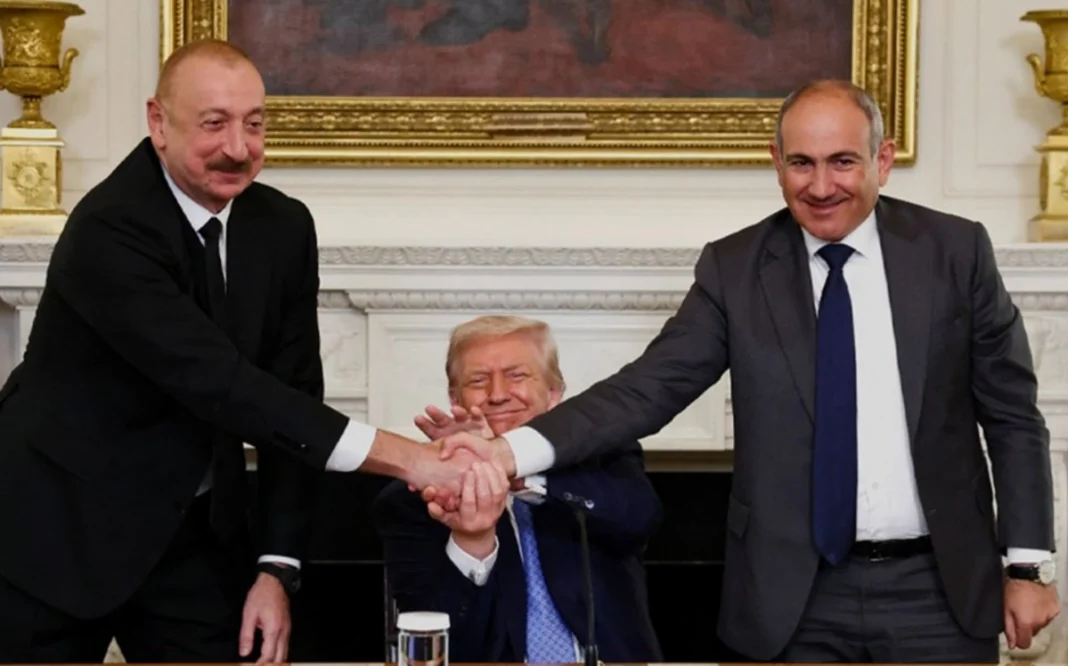Moscow, September 7, 2025
By Azerbaijan.US Editorial Board
When Armenian Prime Minister Nikol Pashinyan and Azerbaijani President Ilham Aliyev signed a joint declaration in Washington on August 8, flanked by then-U.S. President Donald Trump, the optics were clear: America was back in the Caucasus as peacemaker. But the reaction among parts of the Armenian diaspora shows just how contested the meaning of that paper is.
Ara Abrahamyan, the influential head of the Union of Armenians of Russia, dismissed the declaration as a hollow gesture. In his words, Trump “simply witnessed the act” and Washington assumed no legal responsibility. To Abrahamyan, the document “plays no role and will not bring peace.”

The criticism cuts deep at Pashinyan. For years, his government has been accused of seeking photo-ops and Western legitimacy rather than binding agreements. Abrahamyan’s insistence that “international lawyers must review and defend state interests” underscores the growing perception that Armenia signed away leverage without guarantees.
Who gains from this imbalance? In Abrahamyan’s view, the winners are obvious:
The United States, which can claim diplomatic success — Trump boasting that he “stopped a war that lasted 35 years.”
Azerbaijan, which secured recognition of its core demands while reinforcing its position as the confident party in peace talks.
For Armenia, by contrast, the Washington paper highlights weakness. The declaration, with its seven vague points, only confirms intent — not substance. It mentions a paraphing of a draft peace agreement, but without details or enforcement. And the symbolic joint appeal to the OSCE to dissolve the Minsk Group reads more like the funeral of a long-dead format than a roadmap to reconciliation.
The diaspora critique matters because it reflects a broader anxiety: that Yerevan is making concessions without securing guarantees. In the South Caucasus, symbolism alone does not buy security. For now, the “Washington Declaration” seems less a step toward durable peace than another reminder of Armenia’s narrowing room for maneuver — and Azerbaijan’s widening advantage.
This editorial reflects the position of the Azerbaijan.US Editorial Board, which supports Azerbaijan’s sovereignty and security, while standing for transparency, accountability, and respect for its people.


